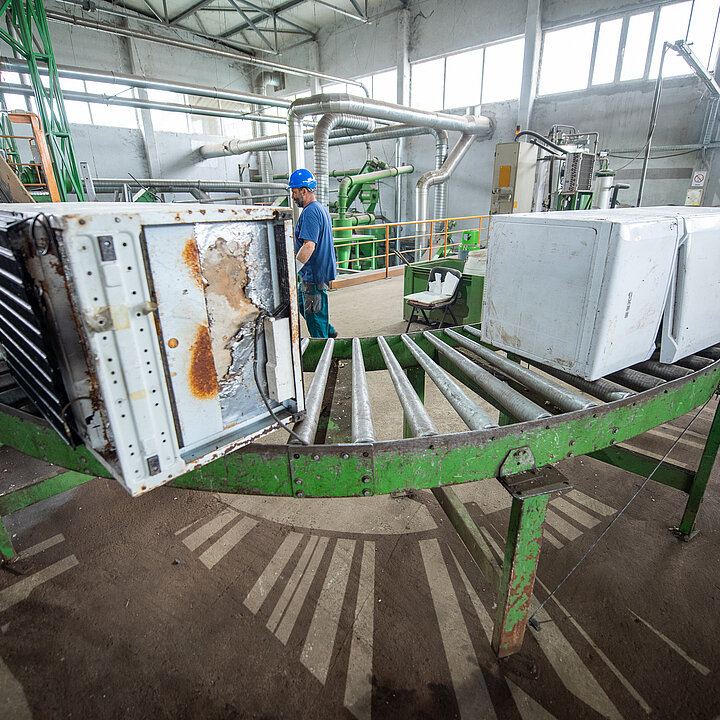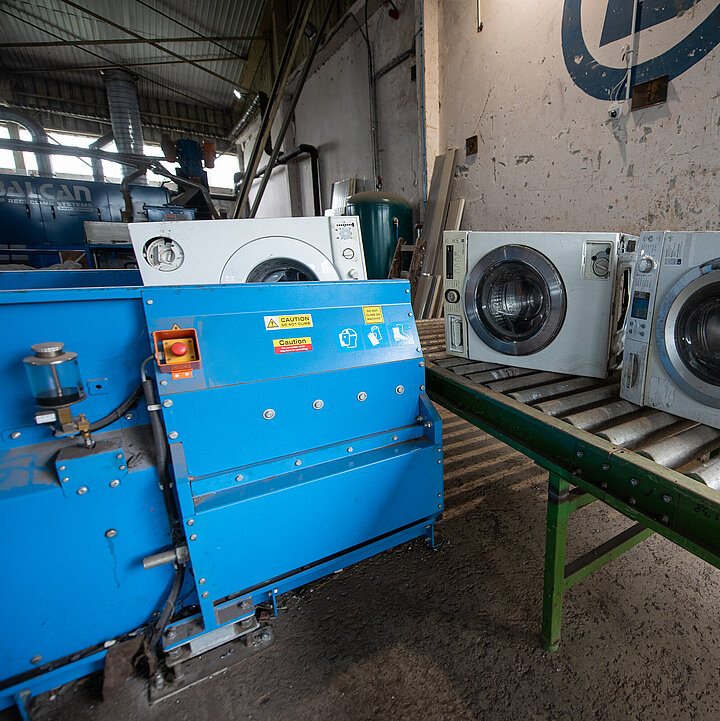The challenge
Companies that import or manufacture electrical or electronic products in Serbia are required to report the volume of equipment they sell and pay a levy on its collection and recycling. However, this system has been widely criticised as being non-transparent, incompatible with EU standards and therefore discouraging to investment.
Hisense is the market leader in Serbia for household appliances such as refrigerators and washing machines, which account for a large proportion of e-waste. Coca-Cola has partnered with the company because it imports a significant volume of refrigerators, for which it is required to pay an environmental tax. It is therefore particularly important for the two companies that taxation of e-waste is based on solid data collected in a transparent manner. Fair competition can only be guaranteed if the reporting and taxation system is transparent. Hisense also sees its reputation threatened if manufactured products are disposed of illegally.
Currently, about 30,000 tonnes of e-waste end up every year in illegal landfill or, in the case of small appliances, in normal household waste in Serbia because there is no infrastructure for recycling. This poses a high risk of harm both to health and the environment.
Project approach
In order to introduce a transparent reporting and taxation system for e-waste in Serbia, from 2017 to 2020 the project partners implemented the following measures, with a funding volume of almost EUR 400,000:
- establishment of procedures for taxing e-waste.
- development and testing of software for the reporting and tax collection system.
- improving local collection systems for e-waste.
- awareness-raising for e-waste collection and recycling.
Throughout the process, the project partners worked with the relevant government agencies, including the Serbian Ministry of Agriculture, Forestry and Environmental Protection, waste management companies and the National Alliance for Local Economic Development (NALED).
Hisense and Coca Cola HBC took over development of the software, among other things, while GIZ contributed to the success of the project with its expertise in setting up modern waste management systems and strong contacts with local stakeholders involved in politics and waste management.
It was a great asset that the Serbian Government as legislator, Hisense and Coca-Cola HBS as affected companies, and GIZ with its extensive expertise in modern waste management pulled together in this project to contribute their interests and knowledge to the new reporting and taxation system for e-waste.
It speaks volumes for the results achieved that 94% of registered companies subject to a mandatory reporting obligation for e-waste use the software developed by this project. This is one more great initiative that may serve as a model for qualitative intersectoral cooperation.


Results
The project significantly improved the legal and institutional framework for e-waste collection and recycling in Serbia.
- A software-based reporting and taxation procedure was introduced, in which all companies operating in Serbia as importers or producers of electrical or electronic products are registered for reporting
- The authorities responsible for e-waste have improved their procedures and communications for reporting and taxing e-waste
- Government procedures for the provision of funds for the local management of e-waste have been improved and construction of local recycling centres has been stepped up
- Awareness of the need to collect and recycle e-waste among government institutions, businesses and the general population has been increased

develoPPP Classic
develoPPP Classic is aimed at medium-sized and large companies that want to invest sustainably in a developing or emerging country and expand their operational activities locally. Suitable projects receive technical and financial support of up to two million euros in public funding.
Project partners






